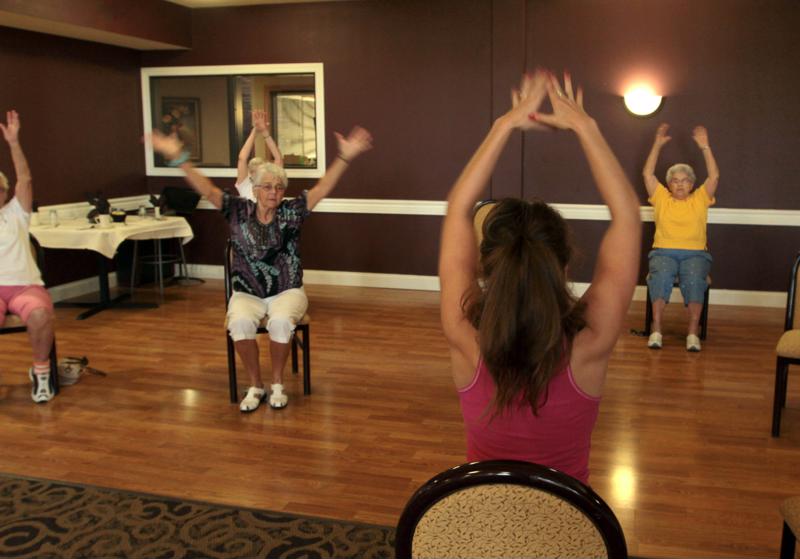
According to the Centers for Disease Control and Prevention, as many as 52.5 million adults in the U.S. have been diagnosed with arthritis or a similar chronic pain disease. As we age, our joints and bones become more susceptible to these types of health conditions, which can significantly impact our quality of life.
Your senior loved ones may find they are less agile than before and may experience pain when they’re not moving. You can help them feel better physically with a few tips:
Find Senior Living Near Me
Provide Assistance
“There are things your loved one can’t do anymore.”
There are many things your loved one may not be able to do anymore, like carry plastic grocery bags or braid hair. You can be of assistance for some things. For example, if seniors wear glasses, they may need help cleaning the lenses because they hurt their fingers. Think of what the individual enjoys, like crocheting or fixing old cars. If they may have difficulty with that activity because of arthritis, offer to help out. You can get them more giant crochet needles for easier handling to rebuilding a car yourself. Not sure how to help? You can always ask.
Promote Movement & Exercise
Although it may seem counterintuitive, exercising can be very good for people living with arthritis. When you move about, it loosens your muscles and lubricates your joints, which can do wonders for easing pain. Your loved one may be hesitant to exercise because they think it will hurt, but you can be at their side to be sure they don’t fall or have any other issues. Talk with their doctor about movements to help your loved one’s arthritis issues. Also, consider having them work with a physical therapist. Many assisted living communities provide exercise classes that are aimed at seniors. This means many activities take place from the comfort of a chair so everyone can partake. Plus, there are always people on staff to help if someone has an accident or needs assistance.
 Incorporating exercise into a daily routine can alleviate arthritis pain.
Incorporating exercise into a daily routine can alleviate arthritis pain.
Encourage Them to Follow Their Medication Regimen
Most people who have severe arthritis choose to treat their pain through medication. Suppose your senior loved one lives in an assisted living community. In that case, the community nurse provides the necessary prescriptions or over-the-counter meds to keep them as pain-free as possible. You can stay current by talking with the individual’s doctor or contacting the assisted living community. People in memory care need special assistance taking their medications and receiving them from certified caretakers who are on staff around the clock. Following a medication regimen, as noted by a physician, can help alleviate the pain and swelling associated with arthritis and make even simple tasks like brushing their teeth easier for seniors.
Take Breaks
Older individuals may not have the energy they once had, and arthritis can make everything more tiring. If you’re out with a senior at a social gathering or even just taking a stroll around an Alzheimer’s home, pay attention to how they are doing. Some seniors may require a walker or wheelchair to get around, and they may need to stop and rest now and then. Encourage your loved one to retreat to their room for a nap if feel like it.




